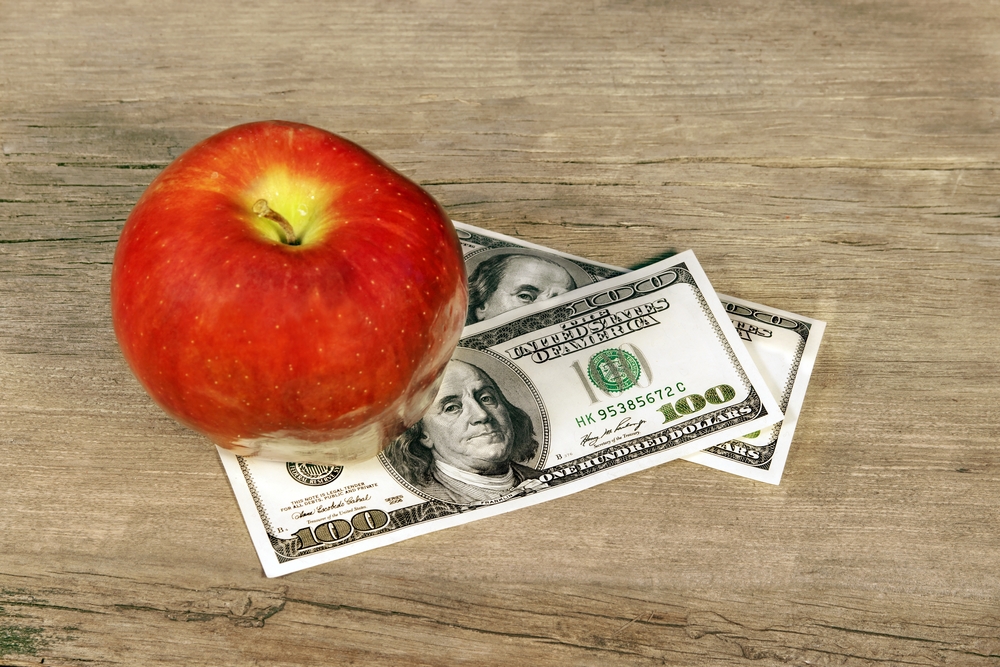The iPhone maker is more than just an impressive growth story. It is one of the largest dividend payers in the U.S. The group of exchange traded funds tethering themselves to Apple payouts include the QQQ Trust and the QQQM.
The yield on the Nasdaq-100 Index is just 0.48%, which is 19 basis points below Apple’s dividend yield. The bulk of the index’s dividend strength is tied to Apple and Microsoft, though other components are getting into the game. Apple’s yield is definitely low, but it also implies there’s plenty of room for growth.
Other metrics show that Apple could be doing more with its dividends. Technology companies tend to pay out a lower ratio of earnings than the overall market, but Apple pays out a high amount of dividends based on the last fiscal year’s earnings of $5.61 a share. Apple lags behind the broader market and even its own sector in yield: S&P 500 technology companies yielded about 1%, compared with 1.6% for the broader market, according to FactSet.
Apple appears to be cheap with its dividends. A case can be made that this is correct, but it is important to remember that the iPad maker is a relatively new dividend payer and has been a dependable grower since it introduced its payout.
Apple is consistently one of the largest buyers of its own shares, so it doesn’t skimp on shareholder rewards.
Apple emphasizes share repurchases, which totaled about $86 billion for its common stock last year, over dividends when it comes to capital returns. The profits get spread across fewer shares and stock buybacks are seen as a way to boost earnings.
The good news for QQQ and QQQM investors is that Apple is increasing its payouts by 4.5%, which is good news for those funds because they allocate more than 12% of their weight to tech stock. The company didn’t discuss future plans for the dividend in percentage terms.
In order to boost the latter, the company would likely have to trim the former. On the downside, investors can embrace Apple as a total shareholder reward play, knowing that it has the resources to support both buy back and growth of payouts.
The Education Channel contains more news, information, and strategy.
Tom Lydon’s opinions and forecasts may not actually come to fruition. Information on this site should not be used to make an offer to sell, a solicitation of an offer to buy, or a recommendation for any product.
The education channel InvescoQQQ.
